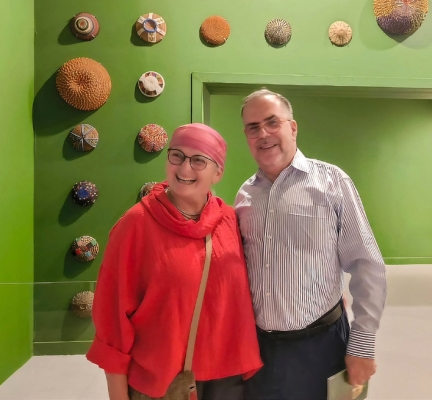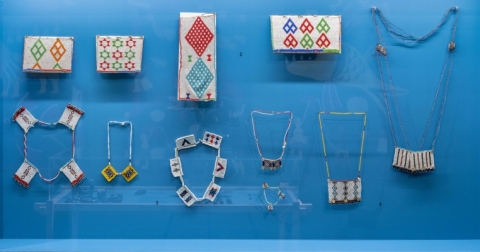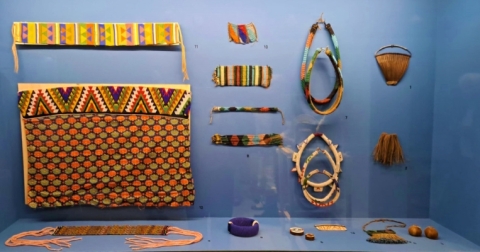A Unique African Collection is Revealed
A Unique African Collection is Revealed
The African continent brims with a multitude of cultures each with its own beliefs and traditions. African art embodies a wide range of styles and symbolic meanings whichreflectthe diverse cultures of the African people. Beyond aesthetics, African artserves both functional and ritual purposes and plays a vital role in both religious ceremonies and social interaction.
"Africa Calling: The African Collection Revealed," is an exhibition on show at the Haifa Museum of Art, which showcases the museum's vast collection of African artifacts. Formerly on display at the Haifa Museum of Ethnology, the collection remained concealed from public view for thirty years. Curated by Dorit Shafir, the exhibition comprises approximately 1,000 works donated by avid collectors and donors from around the world, each of whom has explored diverse cultures and regions of Africa with expertise and dedication.
Recently, an extraordinary donation was gifted to the Haifa Museum of Art by art collectors Stephen and Nadine Cohen, who donated their collection of African art, comprising over 600 original items created and used primarily by the Zulu people of South Africa. The collection was donated in memory of their parents, Roy Cohen and Sonia Cohen Strous and Morris and Sonia Hoffman. The new exhibition, "Africa Calling" was already in the planning stages, and the generous donation has enabled the Museum curators to modify and expand the exhibition to incorporate much of the Cohens' gift.
Raised in Durban, South Africa, Stephen was exposed to and became familiar with Zulu art from a young age. He began to assemble the collection in South Africa and continued to collect items of Zulu culture both after he and his family relocated to the United States and subsequently to Israel, thereby maintaining a connection to his African roots. The collection included diverse items such as beer pot covers and unique jewelry and amulets, all of which are of spiritual or cultural significance.
The Cohens made Aliyah three years ago from St. Louis, Missouri and now reside in Zichron Ya'akov. Their Aliyah is a culmination of a lifetime devoted to involvement in Jewish causes and communities in both South Africa and the USA. Despite the distance which separated them from the African continent, their on-going passion as avid collectors of African art was sustained.
During a recent meeting with the Cohens, Stephen commented: "Nadine and I continued to expand the collection even after we moved to the United States and focused on collecting traditional beer pot covers. When we made Aliyah in 2022, we were looking for a home for the collection in a museum which would share the collection with the public, and ensure that it would be cared for professionally over the passage of time. Happily, we found this home at the Haifa Museum, and we welcomed the wonderful cooperation with the museum management."
According to Ran Hillel, Director of Collections at Haifa Museums, "The gift from Nadine and Stephen is of great historical and cultural significance. In addition to the impressive number of objects, their uniqueness and dating make the collection especially valuable."
In expressing his appreciation, Yotam Yakir, Director-General of the Haifa Museums, added, "The donation has enriched our collection with unique, world-class items. Among these are "Zulu love letters" in the form of necklaces made from beaded squares in which the colour and arrangement of the beads are a code that conveys romantic messages and indicates the social and economic status of the wearer."
"The Cohens' donation includes the world's most comprehensive collection of beer pot covers, which are handmade from palm leaves and decorated with unique and specific designs that have symbolic significance. Lids for beer pots are unique to the Zulu people, and in addition to their amazing colors, they tell a story as each lid is designated for use in a specific event or ceremony."
Stephen and Nadine Cohen are delighted to have found a home for their collection at the Haifa Museums where they know it will now be enjoyed by museum visitors and that it will be professionally maintained for posterity.
The exhibition is on display at the Haifa Museum of Art, 26 Shabtai Levi Street in Haifa until 3rd January 2026.











Comments